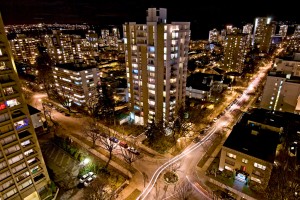Want to live in Vancouver? Here’s how
 We recently posted about Vancouver’s escalating housing prices and the number of people moving to Vancouver for the “lifestyle” rather than for work.
We recently posted about Vancouver’s escalating housing prices and the number of people moving to Vancouver for the “lifestyle” rather than for work.
But if it’s a job — rather than a search for investment property — that’s bringing you to Vancouver, how are you going to find a reasonably-priced place to live?
Renting a home
Anyone relocating to a new city — or country — would do well to rent before you buy. That’s good advice for newcomers to Vancouver, too.
If you’re looking for a short-term rental, particularly a furnished home, try the University of British Columbia Faculty Association’s housing classifieds. While many of the properties would be suitable for visiting faculty or other professionals, you don’t have to be affiliated with the university to access the listings.
Other sites that list short-term rentals in Vancouver, by the day, week, or month, are AirBnB and Make Yourself At Home.
Otherwise, Vancouver Craigslist is the king of local rental listings, and other rental resources include Kijiji and the Vancouver Apartment Guide.
Don’t forget good old-fashioned shoe leather — walking around the neighborhoods where you want to live. Look for “For rent” signs, or check the bulletin boards of the local coffee shops, laundromats, and universities.
One other tip for renters: In BC, the security (damage) deposit cannot be more than half a month’s rent.
Buying a home
When you’re ready to buy a home in the Vancouver area, start by researching neighborhoods around town.
A good place to begin is the City of Vancouver’s Community Profiles page, which has links to profiles of 23 different neighborhoods. Home prices on the East Side of Vancouver are significantly cheaper than those on the West Side.
According to the Real Estate Board of Greater Vancouver, as of July 2013, a detached house on Vancouver’s East Side was averaging $844,600, while a detached house on the West Side averaged just over $2 million. Similarly, East Side apartments and condos were selling for an average price of $306,500, while on the West Side, the average was $476,000.
But you may want to consider the suburbs if you’re looking for a less expensive home. As you might expect, prices tend to drop the further you go from downtown.
Some of the suburban communities with the lowest average home prices include Maple Ridge ($460,600), Pitt Meadows ($505,600), and Port Coquitlam ($550,400). Just be prepared for a long commute if you work in downtown Vancouver.
Most Vancouver-area homes for sale are listed on Realtylink.org. Realtylink also has a “Find a Realtor” section, but the best way to find a real estate agent is to ask friends or colleagues for recommendations.
More information
For more resources for relocating to Vancouver, have a look at our Top 10 Places to Live: Vancouver page. And search all our Vancouver posts here.
For general information about renting or buying a home in Canada, see the Newcomer’s Guide to Canadian Housing from the Canada Mortgage and Housing Corporation. Also have a look at the British Columbia Newcomers’ Guide to Resources and Services.
The Tenant Survival Guide, created by BC’s Tenant Resource & Advisory Centre, is a valuable source of information about legal issues around renting an apartment or home in British Columbia.
And if you have other tips for Vancouver newcomers, please leave a comment and let us know.
Updated August 2013
Vancouver West End photo by stewart (flickr)





















“Good old-fashioned shoe leather” is great advice for finding a place to rent. Where I live in Kitsilano, a hip Vancouver neighbourhood, landlords don’t need to advertise in print or online. So many people want to live here that word of mouth and lawn signs do the trick.
Best advice is to walk (or drive) the hood at the start of the month before you want to rent, or a week or two before the previous month’s end, and look for For Rent signs. They don’t stay up for long.
Thanks for the tips, Carolyn. And I’m glad to discover your Real Estate Refugee site, too!